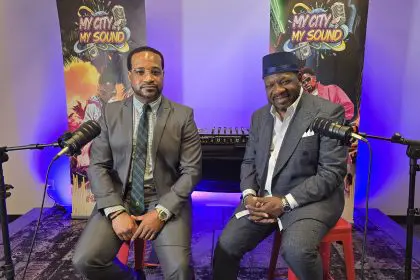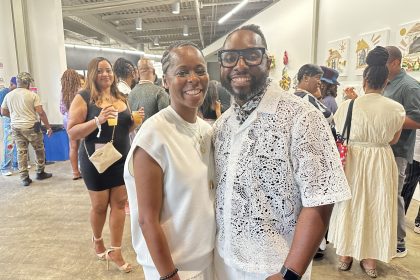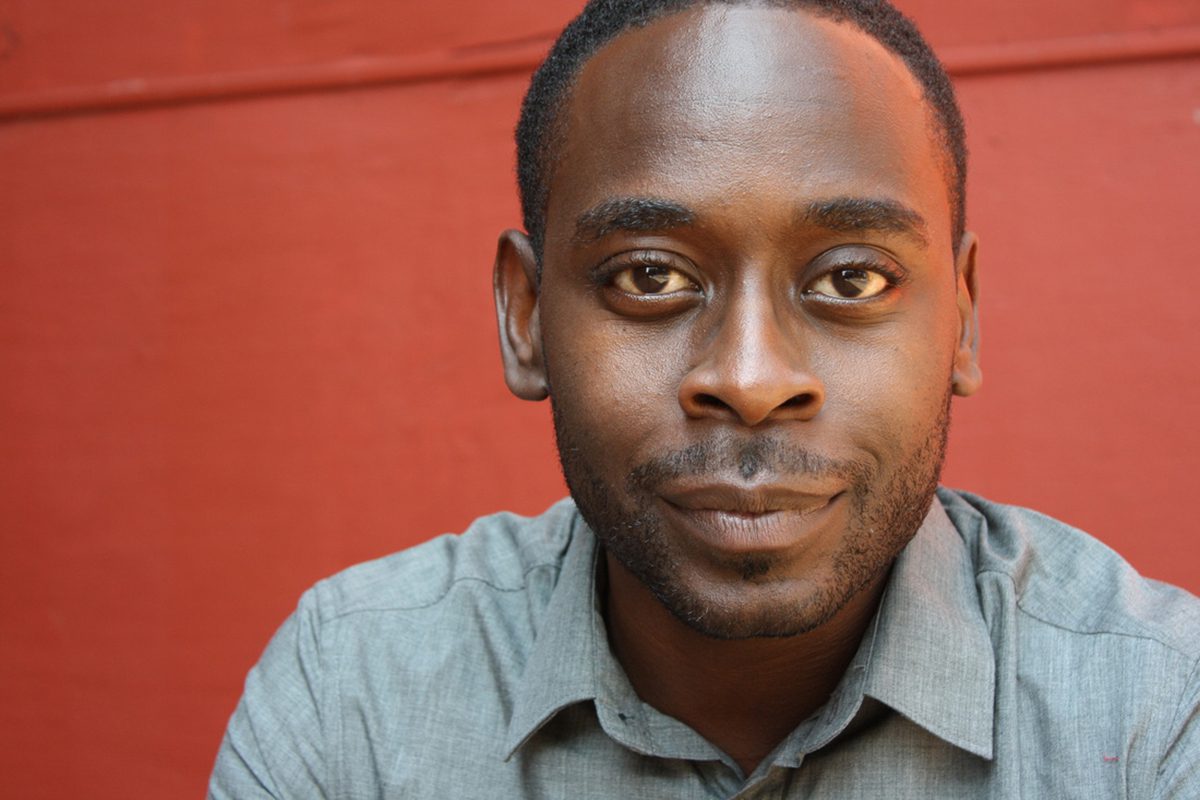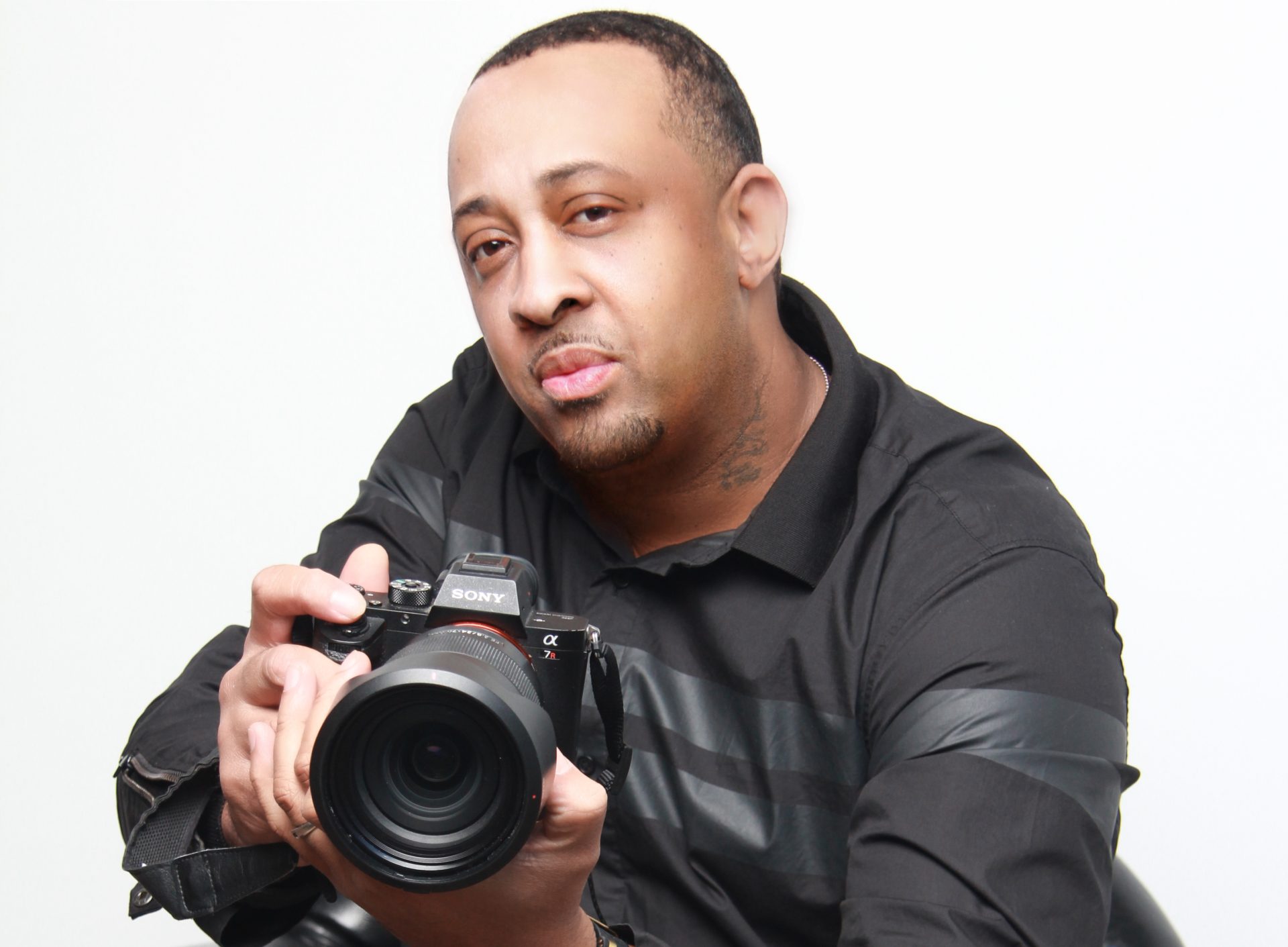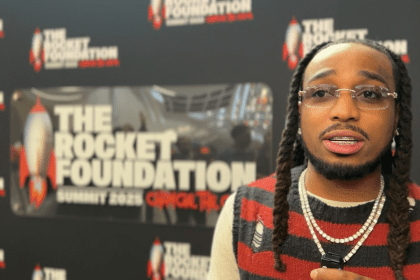
Alvin M. Daniels is a professor at Chicago State University, a playwright and producer. The prolific writer has penned a number of books, produced programs for radio and television, and most recently created Preachers Kids: The Untold Stories, which is being fielded as a stage play, television show and radio program. Read more about this fascinating artist’s creative process below.
Do you most often actively seek inspiration or does it find you? Or is it a combination of the two?
I find at the ripe young age of 51, inspiration finds me. I definitely believe in the universe bringing to you the vibe that you put out. So since I have always tried to be an inspiration to others, that same inspiration comes back to me for my art, my family and those that do and don’t know me. I put inspiration out for all to have.
What led you to art in general and to your art form(s) in particular?
I was a writer coming up through high school. I was inspired by the Most High and my spiritual upbringing under my granddad, the late Rev. H. B. Brady. I began writing books of inspirational poetry and published three books, with the most notable, There’s No Substitute for a Foot Stompin, Home Cookin, God Fearin Mother Like Mine. It was a homage to my wonderful mom, the Rev. Dr. Princella Brady Lee and our strong bond coming up. From there, I received a Gold Congressional Medal, the first college athlete to achieve one, while playing basketball at Boston University. I studied television production and began putting together productions in an abandoned warehouse my family owned in Chicago. We created some great stuff with just our imagination and strong will. Some of the notable productions included producing, “Hay” And “Rodeo” for the multiplatinum group, Crucial Conflict; a jazz series called, “Live From the Warehouse” for the Public Broadcasting System (PBS) and a film short R.I.P. which took a strong look at the gang culture of Chicago. It was featured in several film festivals. My latest artistic venture is a stage play, television show and radio experience, “Preachers Kids: The Untold Stories.” It is a funny, yet poignant look at the church from the view of PK’s from around the country. It was inspired by one of my first mentors, my uncle Floyd Brady. As a PK, he came to aid his father, the late Rev. Dr. H. B. Brady at the Christian Hope Baptist Church. His death was untimely and was advanced by a broken spirit at the hands of some dealings he had in the church. I took that pain and began the series.

Have you ever been involved in traditional business? If so, how?
Traditional business in the sense of it has been televised and featured on stages in L.A., Atlanta, Chicago, Kansas City, Indianapolis, Detroit and Minneapolis.
In addition to mastering their art, what other skill sets to you recommend that artists develop if they want to be successful?
In addition to mastering one’s art, an artist must definitely develop a very thick skin. No and rejection are part of trying to get your art into the mainstream. This thick skin develops patience which helps an artist be able to wait their time and turn for their opportunity in the light. In going after success, being able to enjoy the small victories is important and always being able to define what is a success at different times is very important.
How do you stay at the leading edge of your craft?
In an effort to stay at the leading edge of my craft, I go to conferences to see what the latest technologies and educational aids are available. I am always working to take my work to the next level and never rest on my laurels. What is good today will at some point be old news. Staying current is important. Keeping a positive and spiritual mindset is most important in staying at the leading edge of my craft. This is where you get your inspiration for your next venture. Being in the company of people of like mindedness is most important as well.
Do you think that there are any widely held misconceptions about art and/or artists? If so, what are they and how do you work to dispel them?
The biggest misconception about artist is that we don’t work hard. Most people don’t see the midnight oil burned to finish the work, or the long hours of rehearsal to get a scene right or the numerous rewrites to make sure the dialogue is correct. Overnight successes come from many years of honing your craft. But my dad told me, “If you love your work, you never work a day in your life.” I live by that credo. A big misconception that many people have is that sometimes we don’t need to be paid but be grateful for the exposure given by someone needed our artistic eye. At a certain point, you realize exposure doesn’t pay the bills and you want to be compensated for your expertise.
How do you map out your goals? How do you measure your success?
In measuring my goals, I also try and look at where I am this year and where I want to be next year. That way I never feel like I am standing still or pivoting. Slow progress is still progress. Right now, it’s important for my plays to be seen in larger venues and my TV show be seen on major cable outlets. I am always looking to take things to the next level. I also want to be in the company of successful people, who I can glean from because iron sharpens iron. Success must be measured in intervals because if not, you will miss the forest for the trees.
Who do you consider to be your peers in your field? Who do you see or use as examples to emulate?
As a media producer, I am a big fan of Keenan Ivory Wayans, Tyler Perry and Oprah Winfrey. They have been able to take their art and brands to the next level and evolve as needed to make the biggest impact. Owning ones art, lock, stock and barrel has always been important to me and each of these people owns their art and have a stake in the distribution channels that display their art. That is the path I am looking to emulate.
Name two of your top role models: one in the art world and one from outside of it.
My first major role model outside of the art world, was my uncle the late Floyd Brady. He was an Ivy league educated (Princeton University) professional in the Fortune 500 arena (vice president – CNA Insurance). He was also an awesome athlete, having been the all-time leading scorer in basketball at Hope College in Michigan. He was always able to walk among kings, while keeping the common touch. My in the arts business role model is Oprah Winfrey. Her ability to transition from being a talk show host, to a TV producer, to owning her own distribution outlet has really given me something to shoot for.
Name three books, works, performances or exhibits that changed how you view life and/or yourself.
The Bible was very important in giving me a strong spiritual being. “The Secret” video helped me develop my ability to speak into existence those things that I want to happen and allow the universe to bring them closer to me. That was totally life changing. The film “Hollywood Shuffle” by Robert Townsend was very important in my development. It showed me the view that Hollywood wants to portray of me but my responsibility to show the images of myself that I want to be portrayed.
Why do you consider continued learning important?
Continued learning is very important because it fosters continued growth. Ones ability to learn more about ones craft and lessons in life lead to a fulfilling life. For example, it seems like just yesterday, we were using the VCR with tape. Now my business operates on files and non linear planes. That was a big technological transformation and it was important for me to become abreast and immerse myself in the change in the industry.
What affirmations do you repeat to yourself that contribute to your success?
Affirmations I repeat to myself include: If it’s heaven sent, it doesn’t need earthly approval.If you love your work, you will never work a day in your life. Use What You Got, To Get What You Want. Never allow others to define who you are … you define yourself. Always use your time wisely and be OK with saying no.
What role does art have in the community? What role would you like to see art play in the community?
Art is very important in the community. It is the creative compass of the community. Music, movies, television shows and media all help people in forming their opinion of the world. So it is very important that artists get the opportunity to create art that truly displays their experience.
What role does technology play in your day-to-day life? How do you utilize it?
As stated earlier, technology is directly related to my art in the television and music industry. Which is why mastering it allows you to never be a slave to someone else’s way of doing things.
What software, app or other technological innovation has made the biggest difference in your life and/or career?
Non linear editing software and files on cameras have made the biggest technological differences in my art. They have helped me to create and deliver my art more efficiently. The advent of the laptop has always helped in processing words and ideas into scripts and finished products.
Please define your personal brand.
My personal brand is “Preachers’ Kids: The Untold Stories” (www.amenzone.org). It is a funny, yet true look at the church from the view of the Preachers Kid. What you see is a videotaped interview with the PK and then my actors act out a scene from the PK’s life. Add in Deacon Pray Too Long, Sis. Tell It All and Sis. O.F.F. Keys and their you have the people that the PK runs into on a regular basis at the church. It is a stage play, television show and radio experience
What is your favorite vacation destination and why?
Martha’s Vineyard has become my favorite vacation destination. The easy going atmosphere, the laid-back people and the many things to explore have all been reasons why I love the place. It is a world within itself and I am happy to see African Americans really living on the island.
If you could change one thing about the world, what would it be?
If I could change one thing about myself, it would probably be my spending habits. Also, always keeping myself and what I want to do, first, before always taking others into consideration. That is my church upbringing.
If you could change one thing about yourself, what would it be?
If I could change one thing about the world, it would be inequality. That there are so many people that will never live their full potential because they have never been exposed to a better life really bothers me. The ism’s, racism to sexism to classism are usually the reasons for many of these inequalities.
What does it take to be iconic? In your estimation, who has achieved that status?
Iconic status is achieved when you wake up everyday and do exactly what you want to do and get paid WELL for it. Not having to answer anyone else and being able to mingle in all social strata is also iconic. Being recognized as a standard bearer for ones craft is also iconic status. Oprah Winfrey, Tyler Perry, Venus Williams, President Barack Obama and Al Pacino are iconic in my eyes to name a few.



